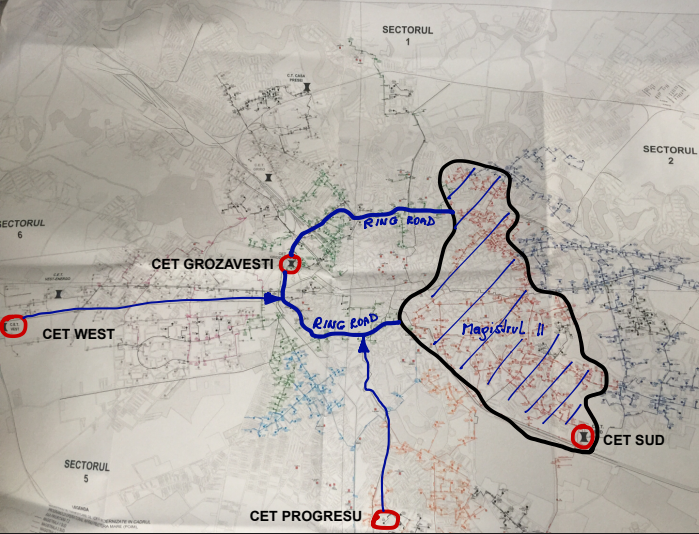Under the Lot 2: Energy of the Framework agreement to support EIB advisory services (EIBAS) activities inside and outside EU-28, NTU Consortium provided Technical Assistance for the Assessment of District Heating Projects in Croatia and Romania.
This project was implemented from November 2017 to June 2019, with a budget over 300,000 € and focusing on the improvements in the energy efficiency of the overall district heating system and the level of service provided to the households in the Municipality of Bucharest and several municipalities in Croatia. The reduction of heat losses in transport and distribution networks of the District Heating systems lead to greater efficiency and a reduction of costs and GHG emissions.

Rehabilitation of 200 pipe kilometers of district Magistrul II and the Ring Road
How we are doing it
NTU Consortium supported the Joint Assistance to Support Projects in European Regions (JASPERS) to provide technical assistance to the managing authorities of Bucharest, Zagreb, Rijeka, Osijek, Split and Slavonski Brod.
The Consultant assisted in the production of General Guidance Notes on the technical and economic Feasibility Studies of the proposed projects and the plausibility of the prospective roadmaps for project preparation for the rehabilitation and modernization of District Heating Systems. The General Guidance Note included Cost benefit Analysis, where the following 7 steps were undertaken:
- Objectives definition,
- Project identification (PIP),
- Feasibility and options analysis,
- Financial analysis,
- Economic analysis,
- Multicriteria analysis, and
- Sensitivity and risk analysis.
Impact
The project studied helped with the increase of the energy efficiency and promoted sustainable economic growth as well as safe and efficient use of natural resources. The work developed in Bucharest by the Consultant team led to a 200 km of transport pipe rehabilitation project where heat losses are expected to be reduced from 28% to 15%. In Croatia, five District Heating companies presented Financial Applications based on Feasibility Studies undertaken by the project Team.
Actual level of water into the system is 180 000 m3 and the annual water losses is 9,8 million m3 , which is far beyond European practices. In average the District Heating water in Bucharest is to be replaced every week, while best practices indicate only once per year.
